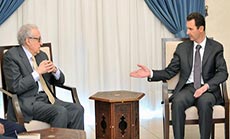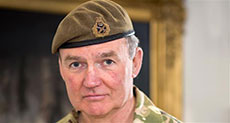Mursi Calls for Dialogue, Opposition’s Protests Continue

Local Editor
Egypt's president, Mohammad Mursi, called Thursday for a national dialogue after deadly clashes around his palace, where demonstrators responded by demanding the "downfall of the regime," using the chants that brought down Hosni Mubarak.
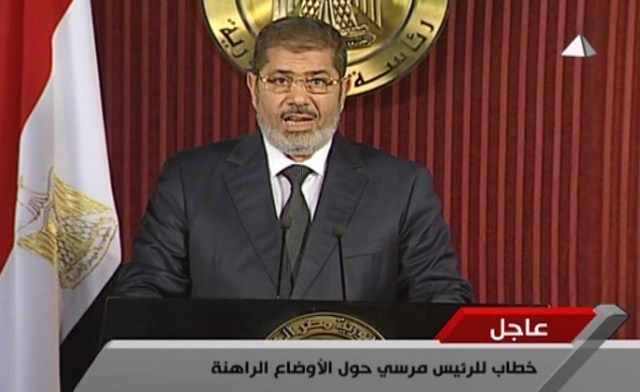 In a televised speech Mursi stressed that "plans for a referendum on a new constitution on Dec. 15 were on track."
In a televised speech Mursi stressed that "plans for a referendum on a new constitution on Dec. 15 were on track."
He further proposed a meeting Saturday with political leaders, "revolutionary youth" and legal figures to discuss the way forward after that.
This comes as the Republican Guard intervened Thursday to halt violence outside the palace, where seven people were killed overnight in clashes between supporters and opponents of Mursi.
The main opposition coalition, the National Salvation Front, rejected the offer of talks to end the crisis in a statement, according to Egypt's Al-Ahram.
"Following the latest violent events, it is difficult for the front to negotiate, ignoring the innocent blood spilt," Al-Ahram reported the coalition as saying. "The president is ignoring the attempts of the front to save the nation and his ignoring the demands of the people and their protests has closed the door for any efforts for dialogue."
Meanwhile, opposition rejected the offer, and fresh demonstrations were called for Friday.
The crisis was sparked by Mursi's Nov. 22 decree awarding himself wide powers and ending judicial review.
The opposition has previously demanded that Mursi scrap his decree, postpone the referendum and redraft the constitution.
As well as drawing up a political road map, Mursi said the talks would aim to resolve the fate of the upper house of parliament after the lower house was dissolved in June, the election law and other issues. "I call for a full, productive dialogue with all figures and heads of parties, revolutionary youth and senior legal figures to meet this Saturday," Mursi declared, adding that the meeting would be at his official palace.
Several thousand opposition protesters near the palace waved their shoes in derision after his speech and shouted "Killer, killer" and "We won't go, he will go" - another of the slogans used against Mubarak in last year's revolt.
The Cairo headquarters of the Muslim Brotherhood, the group that propelled Mursi to victory in a June election, was set ablaze. Other offices of its political party were attacked.
Mursi said he did not insist on keeping his actions shielded from legal challenge, adding that his entire decree would lapse after the constitutional referendum, regardless of its result.
He said a new constituent assembly would be formed to redraft the constitution if Egyptians rejected the one written over the past six months by an assembly dominated by Mursi's Brother Hood party.
The Republican Guard, an elite unit whose duties include protecting the presidential palace, had ordered rival demonstrators to leave by mid-afternoon. Mursi supporters withdrew, but opposition protesters remained, kept away by a barbed wire barricade guarded by tanks.
By evening their numbers had swelled to several thousand.
The military played a big role in removing Mubarak, taking over to manage a transitional period, but had stayed out of the latest crisis.
Thousands of supporters and opponents of Mursi had fought well into Thursday's early hours. Officials said 350 were wounded in the violence. Six of the dead were Mursi supporters, the Muslim Brotherhood said.
Six of the president's advisers have resigned since the crisis began. Essam al-Amir, the director of state television, quit Thursday, as did a Christian official working at the presidency.
Source: News Agencies, Edited by moqawama.org
Comments
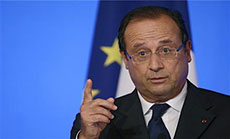
France’s Hollande in Qatar for Warplane Deal
9 years ago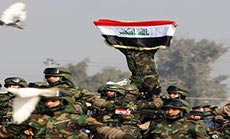
Iraq Police Dismantles Al-Qaeda Protest Site
10 years ago